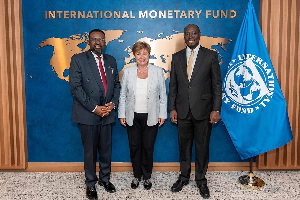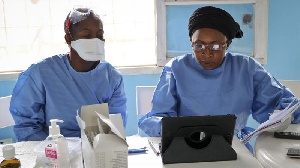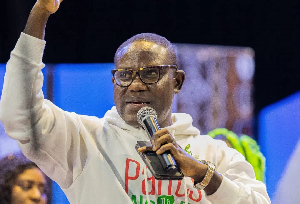The Alliance of Civil Society Organisations for Clean Energy Access (ACCESS), a global coalition, has partnered Hivos, to engage Ghanaian CSOs in Accra, to strengthen partnerships in promoting Decentralisation of Renewable Energy (DRE) and clean cooking in Ghana.
The over 70 CSOs-membership Coalition, works at the local, national, regional, and international level, with the mission to ‘Advocate for people living in poverty to have access to safe, reliable, and affordable energy, and for environmentally sustainable and efficient energy systems globally as espoused in SDG7.
The SDG7 calls for affordable, reliable, sustainable and modern energy for all by 2030 Hivos, is a development aid organisation, headquartered in The Netherlands.
The Accra meeting, held on Wednesday, therefore, sought to provide a platform for CSOs, to share experiences and learnings on the policy environment around Clean Cooking and DRE and CSOs participation in the process.
“Dubbed the experience sharing workshop by CSOs on Ghana’s policy environment for clean cooking and Decentralized Renewable Energy”, the meeting sought to review some of the successes and challenges in advocating for DRE and Clean Cooking in Ghana, what had and had not worked.
It also discussed which technical support or capacity building was needed and what kind; as well as how CSOs could work together to influence policy around DRE and Clean Cooking in Ghana.
Ms Jacqueline Kimeu, International Coordinator, ACCESS Coalition, said Ghana had a lot of good experiences in the energy sector activities including its national programmes on clean cook and DRE, saying these serve as good lessons for many African countries.
She said Ghana’s attainment of Energy accessibility to 85 per cent of its population was also a laudable thing which many African countries could learnt lessons from.
“So we are here to know how CSOs in Ghana have been in working with the government to ensure high energy access levels in the country.
“Looking at other African countries, which are really lagging behind, what can we learn from Ghana in terms of CSOs and other stakeholders working in partnerships with government?.
Ms Kimeu said after the Ghana meeting, ACCESS would hold a similar workshop in Zambia to document other success stories to help share among member countries in helping attaining SDG7 that calls for affordable, reliable, sustainable and modern energy for all by 2030
Ms Edith Karimi, Communications and Membership Manager, ACCESS, said members of the Coalition have continued to support and work in partnership with governments by providing valuable data, advising on policy formulation and demonstrating solutions to secure last-mile energy solutions with respect to DRE and Clean Cooking.
Despite this collaborative and strategic approach to advocacy by CSOs, implementation of the policy frameworks was not at the speed and scale needed to achieve clean cooking and electrification through (DRE) targets.
She said presently, one billion people have no access to electricity worldwide, while about three billion people still use unsafe energy sources.
Ms Karimi said the workshop, was therefore, to consolidate efforts in accessing clean energy.
Mr Wisdom Ahiataku-Togobo, Director in Charge of Renewable and Alternative Energies, the Ministry of Energy, outlined various activities being undertaking by the government in promoting clean energy usage ranging from the introduction of solar lambs and solar fitting buildings, and the Cylinder refilling circulation model, still on pilot basis.
He said the government had advanced collaborations with the Korean Government in the enrollment of the improved cooked stove programme, saying, the Koreans were yet to sign their portion as Ghana had already initialed it portion.
In a presentation, Mr Ebenezer Ashie, Project Coordinator at the Energy Commission, announced that an estimated 5.6 billion dollars is needed as investment to help Ghana implement its actions in the Renewable Energy Master Plan from 2019 to 2030.
He said that would help in saving about 11 million tonnes of CO2, and providing 220,000 jobs along the value chains, among others, and that the funding was being secured from the private sector and from the Green Climate Fund.
General News of Thursday, 13 February 2020
Source: GNA













